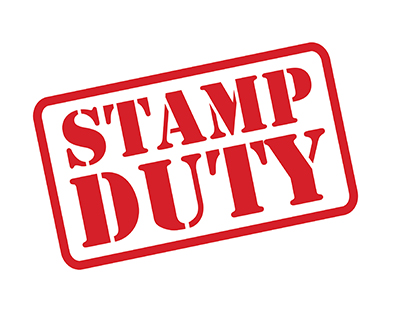
A blog for the British Property Federation has come up with three radically different proposals for stamp duty, providing food for thought as the government ponders how to fulfil its pledge to reform the tax in the near future.
The blog starts from the premise that SDLT is currently leading to market mayhem, with a by-product being that homes “designed … with love and attention” are now becoming something akin to Dr Frankenstein’s Monster as they have extensions and large scale refurbishments undertaken as their owners try to avoid moving costs.
So the blog suggests three very radical alternatives:
1. Net Stamp Duty: SDLT would only be charged on the difference between current value of property and new value of property. “It would encourage liquidity. It would free up more cash at the point of purchase for improvements and refurbishments. It would allow the workforce to be more flexible and switch between locations. No SDLT would be payable on people downsizing” suggests the article.
2. Allow Stamp Duty to be paid over time: “It could be linked to tax codes, and so included in PAYE and therefore would not need a separate collection mechanism to be monitored. SDLT paid, however, is not an issue for the majority of buyers as the SDLT can be rolled up as part of a mortgage, providing there is sufficient equity to pass affordability tests.”
3. A Lifetime Allowance: The blog admits this could be complex and may penalise those who are obliged to move home often, but “this would support first time buyers and second steppers.”
As the housing market continues to apparently suffer from falling transactions, possibly prompted by buyers and sellers waiting to see what stamp duty reform materialises, this is interesting food for thought on the debate.
The government has so far hinted that it could consider switching the SDLT burden from buyer to seller - although this was later dismissed an an option by Chancellor Sajid Javid.
In his bid to become leader of the Conservative party, Boris Johnson pledged to reform stamp duty should be become Prime Minister, and it is widely anticipated that this could be a major part of the government’s manifesto if an autumn or winter General Election is held.
You can see the options floated on the BPF website in full here.













.png)


.jpg)
.jpg)





%20-%20IMAGE%20Client%20Accounting%20%E2%80%93%20what%20are%20your%20options.jpg)


.png)
.png)
.png)
%20(002).png)






%20(002).jpg)



.png)




Join the conversation
Jump to latest comment and add your reply
just do away with it all together - it's a terrible tax
Net SDLT is a great idea which I have never thought of before. In addition to encouraging downsizing, it doesn't penalise those who have to move area but are not moving up. I guess investors have to pay SDLT on the full amount.
When asked how much revenue stamp duty raises each year, Diane Abbott estimated confidently: "about £250 billion".
Why not abolish it. And instead leaving a charge on the annual rental value of the property?
Each purchaser calculates funds available & costs in a transaction. It’s a SPREADSHEET.
REDUCING PRICES are agent & legal fees, purchase taxes, moving costs.
INCREASING net funds RAISES PRICES: lwr deposit ratios, transfers from pension-boomers to descendants, Help to Buy subsidies, lwr int rates, taxes & repair costs, easier CREDIT, longer mortgage terms, FINANCIALISATION & lwr commuting costs in a loc'n.
The mkt functions efficiently with good PRICE DISCOVERY through agents & the internet, so that the best funded MARGINAL purchaser can be matched, at the HIGHEST PRICE, with each seller.
Policymakers respond to lobbying by organised VESTED INTERESTS such as LENDERS & hse builders & (also misinformed) political pressures caused by apparent shortages & UNAFFORDABILITY claims from VOCAL CLASSES! The race is on for quick fixes! Symptom treating is the answer!
Sometimes interventions give short term benefits to an interest group but PRICES in each SUB-MKT quickly adjust to any increase in MONEY SUPPLY to it. Generally, political interventions act to reduce qlty & raise the WHOLE PRICE LEVEL for CONSUMERS, permanently TRANSFERING WEALTH to existing OWNERS & eroding the TAX BASE in favour of the better off.
Please login to comment